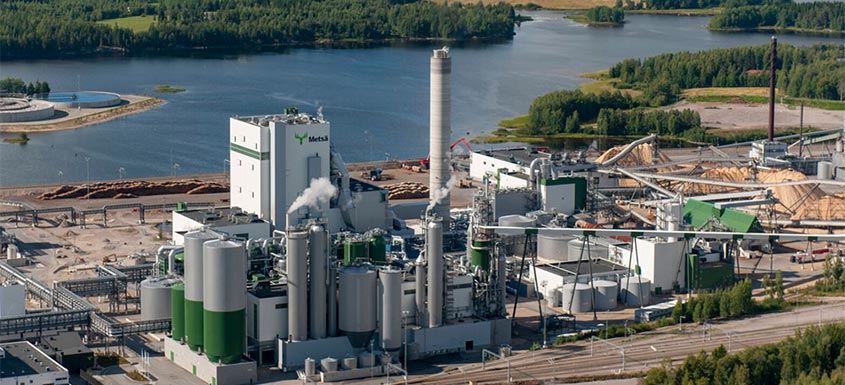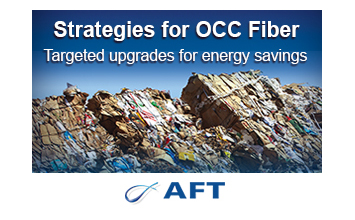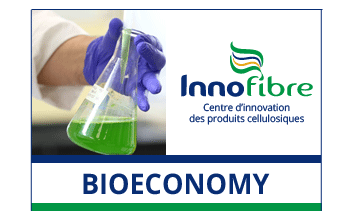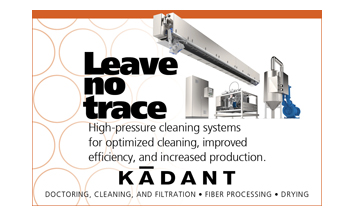Metsä is not only the Finnish word for forest, but also the name of a Finnish cooperative owned by 90,000 Finnish forest owners that collectively own over half of Finland’s private forests.
In a world where sustainability is of paramount importance, Finnish forest-owners recognize that their best interest is to grow the value of their assets in the long term, ensuring that their forests grow more wood than is being used while the biodiversity of those forests is safeguarded.
In 2015 Metsä announced that they would build a “bioproducts mill” in Äänekoski, central Finland. The core investment of €1.3 billion was used to build a modern kraft pulp mill which is now the largest wood-processing plant in the northern hemisphere, but an important project goal was to have one fifth of the turnover of the mill derived from products other than pulp. The bioproducts mill started up in 2017, and today it produces not only 1.3 Mt of softwood and hardwood kraft pulp, but some of the other products produced at the site are paperboard, tissue, greaseproof and printing paper, tall oil, turpentine, bioenergy products, lime and ash for fertilizer, sulfuric acid and methanol.
Enshrined in the concept of the bioproducts mill were the following principles:
- Efficiency – using best-in-class technologies, all raw materials including energy are used as efficiently as possible. Not only is the process free of fossil fuel use and purchased electricity, but the mill generates 1.4 times more bioenergy-based electricity for sale than it uses itself. Use of fossil fuel in the lime kiln was eliminated by installing a huge bark gasifier with a pre-dryer using waste heat from the process to dry the bark.
- Circularity – where possible, internal and external loops are applied, with the aim of maximizing the use of the original wood and minimizing waste. Sulphuric acid is produced from odorous gases and used internally, and the processing of lignin from the mill into adhesives and composites is being developed.
- Partnerships – strategic collaboration with companies of various sizes, academia and other stakeholders. The Äänekoski site has working links to at least five other companies: the Metsä Board paperboard mill; Nouryon, which produces carboxymethyl cellulose; Speciality Minerals, which produces calcium carbonate as a pigment; the energy company Äänevoima; and Valio, which uses heat from the pulp mill to produce the classic Aura blue cheese, among other things.
The Äänekoski site is also host to another Metsä manufacturing site, a laminated veneer lumber (LVL) plant. The final annual production capacity of this plant, being built in stages from 2022 to 2026, will be approximately 150,000 cubic metres. This investment was announced in 2021.
Following the success of the Äänekoski site, a similar mill is now being built in Kemi, in northern Finland. It will be a bioproducts mill producing 1.5 Mt of softwood and hardwood kraft pulp. Startup is scheduled for Q3/2023.
To boost collaborative innovation, Metsä in 2018 established an innovation company it calls Metsä Spring. Its focus is on three activities:
- Corporate Venturing – investing in promising startup companies in the field of wood-based circular bioeconomy;
- Carrying out own R&D projects, typically demonstration projects;
- R&D Group – Supporting and activating R&D linked to Metsä Group's current businesses.
There are currently two demonstration plants operating on the Äänekoski site. Muoto is a joint venture with Valmet to produce moulded pulp packaging products replacing plastic. The demo plant has been operating since May 2022. Kuura is a textile fibre made from Metsä’s paper-grade softwood pulp, not the traditional dissolving pulp used to produce rayon. After pilot-scale testing that began in 2016, the Kuura demo plant was designed and has been operating since 2021. It is a joint venture with the Japan-based Itochu Corporation, which has an interest in the use of sustainable materials in the fashion industry.
Metsä Spring is mostly focused on projects that deliver new materials from biomass, having decided to exclude fuels and bulk chemicals from its scope of exploration. Through strategic investments, its goal is to become the preferred partner for developing ground-breaking forest-based business ideas.
The progress it has made over the last eight years of pursuing their bioproducts vision certainly demonstrates Metsä’s stated belief that, while money does not grow on trees, “great business opportunities grow on trees”!
 Martin Fairbank, Ph.D. Martin Fairbank has worked in the forest products industry for 31 years,
Martin Fairbank, Ph.D. Martin Fairbank has worked in the forest products industry for 31 years,
including many years for a pulp and paper producer and two years with
Natural Resources Canada. With a Ph.D. in chemistry and experience in
process improvement, product development, energy management and lean
manufacturing, Martin currently works as an independent consultant,
based in Montreal. He is also an author, having recently published
Resolute Roots, a history of Resolute Forest Products and its
predecessors over the last 200 years.
Martin Fairbank Consulting
Industry Experience
- Pulp and Paper Technology
- Materials Recycling
- Biorefinery Development
- Manufacturing
- Government Subsidy Programs
Services
- Technical Writing
. White Papers
. Grant Applications
. Explain technical concepts - Scientific Editing
. Review of articles for publication - Project Assessment
. Evaluation of Technologies
. Project evaluation for funding agencies - Pulp & Paper
. Conventional and emerging technologies













